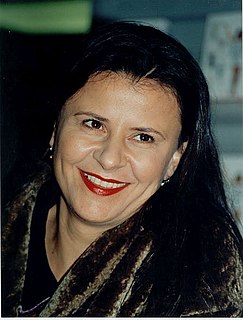A Quote by Ayn Rand
Upper classes are a nation's past; the middle class is its future.
Quote Topics
Related Quotes
If you were a successful upper-middle-class Negro girl in the 1950s and '60s, you were, in practice and imagination, a white Protestant upper middle-class girl. Young, good-looking white women were the most desirable creatures in the world. It was hard not to want to imitate them; it was highly toxic, too, as we would learn.
Christian Science has always appealed to the middle-classes and the upper middle classes. In part, this is because it requires a certain amount of education to study 'Science and Health' to the degree that Christian scientists do. It's not an easy book to read! It's 700 pages, and it's written in a nineteenth-century manner and diction.





































